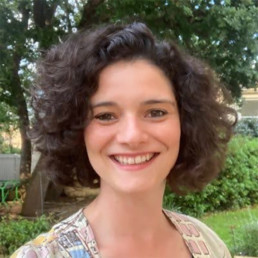
Written by Emma Sheppard
Emma founded The MTPT Project, the UK's charity for parent teachers, in 2016 when on maternity leave with her first child. She has 12 years experience as an English teacher, Lead Practitioner and ITT Lead, and now runs The MTPT Project full time.
This is a vulnerable blog to share publicly. If you follow me on LinkedIn, it will reveal the hard work and heartache behind the upbeat and practical strategies around bilingual education that I often share.
Of course, we save our shiniest achievements for social media platforms but over the last few weeks – in the real world – I have felt keenly, the crushing failures of being “immigrant mum”.
For context, I am an educated middle-class British former teacher living in France with my bilingual children and French husband. My children were born in the UK, have been fully bilingual since birth, and now attend French state primary school. I’m a fluent French speaker (and have a state-issued certificate to prove it) work in English and socialise in both languages.
Sounds dreamy, right?
But sometimes, I feel as if I am losing my children – that they are so culturally embedded in the country we live in, that they have no connection to the identity of their birth country. My identity.
This fortnight, we have been learning about Advent in our home-learning English lessons. They don’t go to school on Wednesdays, you see, because it’s France.
My son, who had a year of lockdown education, is au fait with the characters. He was, after all, the donkey in his Reception nativity and plodded along to Bethlehem with Mary and Joseph. He best friend Gabriel was… the angel Gabriel.
My daughter, who has been educated in the secular French system since pre-school, has a vague understanding of the baby, called Jesus. The star? Joseph? Virgin birth? Heavenly hosts? Gold, frankincense and myrhh? Even the word ‘shepherd’ in English? All these cultural indicators so essential to the British primary education experience? Not a clue.
It gets worse: for the last three years, we’ve attended the carol service run by the local American church. I alone in my family know the words to Silent Night. My husband and children are ignorant to the joy of “Glororororororia” or “Fivvvvee go’old ringggsss!” and as such, they can’t sit through a full service. I hissingly insisted my husband remove them (and himself) somewhere between Royal David’s City and Angels in the Realm of Glory and – French and relieved – they went to eat waffles and ride fairground rollercoasters in le marché de noël.
Extended writing – the lovely recipes and stories and letters you’d expect in lower KS3 – simply aren’t required of my children yet in the French state system. Admittedly, their grammatical knowledge is fast surpassing my own, but mostly they are asked to copy, or write short responses to comprehension activities.
They have never been asked to be a Victorian maid or a to persuade anyone to save the rainforest. They have not written a diary entry from a ship in the middle of the Atlantic, or a newspaper article about a volcanic eruption. Maybe creativity, generally, will never be required of them?
The request to write the Nativity story therefore resulted in meltdowns on all fronts: my son can’t bear the idea of more than two sentences and disappears into the ether of his daydreams; my daughter can’t remember how to spell ‘all’, even though it’s been on her spelling list for millennia.
My children are spectacular: there is no need to qualify this with any reasons why. They just are.
But they are not British, and they have no other encouragement to be British than me, their mother. Ensuring they retain a sense of this identity has become a base urge in me. They will know who Shakespeare is. They will eat jacket potatoes. They will understand the culture importance of a Harvest Festival. Failure simply isn’t an option.
But a lot of the time I feel like a lone salmon, swimming against the current. And increasingly, I’m experiencing the anticipatory grief of becoming the mother of two French children.
For the first-generation immigrant parents in our school communities, how keenly is this loss also felt?
Do they, too, look at their children and see huge holes where a shared identity should be?
And as schools, what can we do to support families who might be going through similar experiences?
(Here come those upbeat, practical strategies…)
- Understand, appreciate and acknowledge (if you can) the cultures of your school communities – including the educational cultures
- Value and encourage the use of the home language – never fall into the trap of thinking that one language leads to an inability to acquire another because the opposite is true – languages feed off one another and grow together
- Value languages, and teach them well – from the earliest possible age
- Create bilingual streams if appropriate for your school context
- Introduce Community Language GCSEs and A Levels as far as your timetabling or extra-curricular offer can support – and involve parents in their children’s preparation for these exams
- Research community language hubs and signpost these to parents if you don’t have the capacity to ‘in house’
- Align language with culture – food, traditions, literature, film, history, sports – and take opportunities to celebrate these
- Foster opportunities where parents can make connections and build their own language communities
As cultural diversity in our schools increases, assumptions of monolingualism in our curricula and communities will only become a hindrance. Celebration and practical support for families aspiring to full bi- or multilingualism will bring out the best in our students and support the full complexity of their identities.

